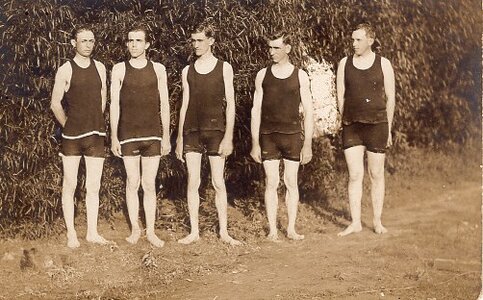NotHardUp1
What? Me? Really?
There are several terms in English for notable learning across the spectrum.
Some are complimentary, others derogatory.
As a child, we were chided or scorned if too eager to demonstrate that learning, and "know-it-all" was used to beat back pride in learning, an odd contradiction to the heavy emphasis on education in the 20th century in the West. The point was more social, to not dominate in dialogue with learning. It also carried the stigma of arrogance.
But the positive labels are still used, mostly for adults. Renaissance man. Polymath. Genius. Even well-rounded.
I was raised with a liberal arts philosophy for learning. My grandmother was indeed a polymath, and read 5-7 books a week from the public library. They also kept a set of encyclopaedias, which were uncommon in homes where they still lacked indoor toilets, which theirs did. There was an inborn assumption that you would learn all you could about anything at all, including contradictory views of politics, religion, and society. That was never taught explicitly, but demonstrated implicitly.
Grandmother was born in 1910, but was well-read in matters as ranging as theology, computer science, history, design, horticulture, genealogy, auto mechanics, cooking, handcraft and sewing, education, agriculture, music, floriculture, genetics, law, and business management. I think her thirst for learning, and her disposition socially, was the reason she was accepted in society in circles well above her (then) station. Considering the poverty she lived within, it was really quite remarkable. ( It was in profound contrast to her mother-in-law, who never learned to drive an automobile, never read anything beyond the local newspaper or the Bible, and didn't kwow what a percent was. Yet, she was highly regarded in that rural culture for her hard work.)
The famous polymaths in history still stand out as superstars.
What about you? Whom do you know, or have you known, who is a polymath? Was he or she approachable and gregarious, or not?
Some are complimentary, others derogatory.
As a child, we were chided or scorned if too eager to demonstrate that learning, and "know-it-all" was used to beat back pride in learning, an odd contradiction to the heavy emphasis on education in the 20th century in the West. The point was more social, to not dominate in dialogue with learning. It also carried the stigma of arrogance.
But the positive labels are still used, mostly for adults. Renaissance man. Polymath. Genius. Even well-rounded.
I was raised with a liberal arts philosophy for learning. My grandmother was indeed a polymath, and read 5-7 books a week from the public library. They also kept a set of encyclopaedias, which were uncommon in homes where they still lacked indoor toilets, which theirs did. There was an inborn assumption that you would learn all you could about anything at all, including contradictory views of politics, religion, and society. That was never taught explicitly, but demonstrated implicitly.
Grandmother was born in 1910, but was well-read in matters as ranging as theology, computer science, history, design, horticulture, genealogy, auto mechanics, cooking, handcraft and sewing, education, agriculture, music, floriculture, genetics, law, and business management. I think her thirst for learning, and her disposition socially, was the reason she was accepted in society in circles well above her (then) station. Considering the poverty she lived within, it was really quite remarkable. ( It was in profound contrast to her mother-in-law, who never learned to drive an automobile, never read anything beyond the local newspaper or the Bible, and didn't kwow what a percent was. Yet, she was highly regarded in that rural culture for her hard work.)
The famous polymaths in history still stand out as superstars.
What about you? Whom do you know, or have you known, who is a polymath? Was he or she approachable and gregarious, or not?




